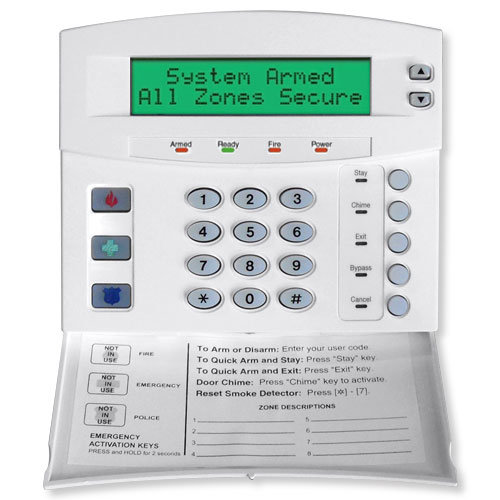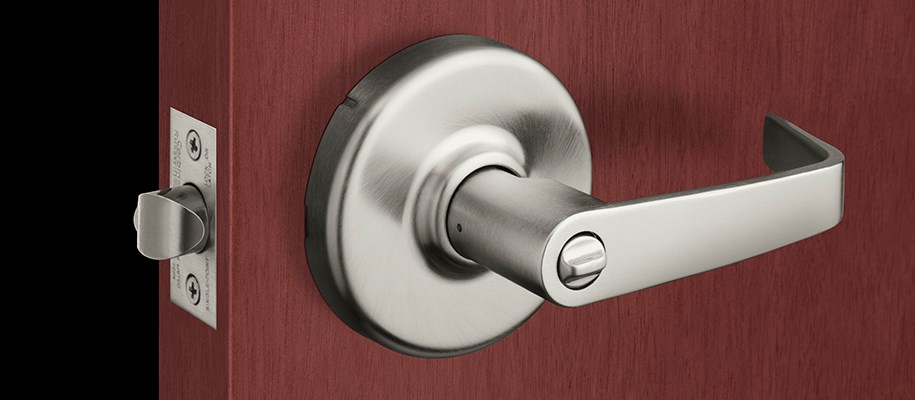As a small, family-owned business, at Northeast Security Solutions we understand the effort that goes into starting a new business venture. Of course, many aspiring business owners know all too well about the amount of work ahead of them. However, as with building anything from the ground up, things often come up that surprise new business owners. We find security often fits right at the top of the list of “surprises.” Local and national laws and codes, as well as insurance mandates, often throw unexpected expenses and delays when trying to open a new commercial location. In this post, we break down some of the required security for new businesses so that you don’t face these same surprises.
We will begin with smoke and life safety equipment. This area has long remained one of the most intense and scrutinized aspects of commercial security. From there, we will look at the range of fire-extinguisher codes, another fire-related security measure. Then, we will take a look at burglar alarm system installation. While not always legally mandated, business owners do occasionally need to install these systems. Finally, we will take a look at installing proper lock and door hardware. Now, let’s get started by exploring smoke and life safety requirements for new businesses.

The International Building Code, or IBC, creates many of the security requirements for new businesses across the country.
Smoke and Life Safety Equipment
The International Code Council (ICC) and the National Fire Protection Alliance (NFPA) create the codes and standads for a number of safety measures. They apply to several industries, including contsruction, mechanical work, and plumbing. The most relevant code for smoke alarm requirements put out by the ICC is the International Building Code, or “IBC.” The code that provides guidelines for fire alarm system design is the National Fire Alarm and Signaling Code, or “NFPA 72.” For this reason, fire departments and fire system designers reference these code books frequently.
The IBC and NFPA72 work together to determine what type of fire equipment you need, and where. Specifically, the International Building Code places your business in a certain “class.” Examples of class types include retail spaces, places of worship, hotels and other boarding spaces, and schools. The IBC combines your type of business with factors such as building size and occupancy. Using these measures, it then tells you what type of fire system you require.
After determining fire system requirements, we design an alarm. Then, we use NFPA 72 to meet guidelines for spacing, material, and equipment technology. Every few years, the ICC and NFPA create new versions of these guidelines. States ratify these into law at their own pace, but generally remain fairly up to date in keeping up with national guidelines. Unfortunately, constantly-changing system requrements can surprise business owners. For example, an owner of a business who moves locations could experience stricter fire system guidelines in their new spot, even without changing the type of business they run! Therefore, doing this research beforehand can save you grief when opening up your business. Now, let’s look at another fire safety-related type of security for new businesses.
Fire Extinguishers
Just as with fire alarms, the NFPA has a large say in commercial fire extinguisher requirements. In this case, NFPA 10 provides the bluepring for extinguisher installation. These requirements include industry-specific guidelines for the type of extinguisher required in specific areas of a business based on the present fire hazards. Our web site’s Fire Extinguishers section does a good job running down these types of extinguishers. We offer extinguishers that fight wood fires, gas fires, kitchen fires, and more. The type of business you run will determine what types of extinguishers fit you best.
After using the code to determine the best extinguishers for you, the next step is to put them in their proper place. NFPA 10 guidelines use your business classification and fire risk to determine this spacing. For example, “light hazard” businesses require detectors within 75 feet of each other. Finally, you must have a company with the proper license, such as oureselves, perform annual exinguisher maintenance. This involves checking your detectors for defects every year and performing occasional testing and refilling of extinguishers. Just as with the other items in this section, NFPA 10 tells us how often different types of extinguishers require these services. Next, let’s look at when you may need to install one of the industry’s most common types of security!

Burglar alarm systems, such as this model by Interlogix, may be required in certain types of businesses.
Monitored Burglar Alarm Systems
When people think of commercial “security,” they generally think of burglar alarms. These security systems create a blaring siren response upon detecting intrusion. Furthermore, when monitored by a central station, they can create a police dispatch when necessary. That makes them a popular addition to any business security plan. Unlike the other types of security described in this post, national codes do not require burglar alarms. However, other factors occasionally do make adding burglar alarms a required measure. In this section, we’ll go over a couple reasons business owners may need this security for new businsses. Let’s get started with a look at industry-related burglar alarm requirements.
Inustry-Specific Requirements
As we pointed out above, no national laws or sets of codes requires the installation of a burglar alarm. However, occasionally states creates industry-specific laws that make this a mandatory step. For example, in Massachusetts, the Cannibas Control Commission (or “CCC”) requires burglar alarms in buildings that produce or sell marijuana. These requirements include specific guidelines for the performance of these security systems as well. In particular, our state requires these businesses to install alarms that stay monitored through means other than phone lines. This ensures that a failure with local phones will not interfere with alarm monitoring for cannabis-related businesses.
Additionally, these burglar alarms must also provide security that monitors every door and window in the building. Moreover, these alarms must have a backup battery installed to keep them up and running during a power outage. Finally, CCC guidelines call for a separate “backup” alarm system in case the first system fails. Of course, business owners in this field may find themselves taken aback by the need to install two burglar alarms. That makes this a great example of how knowing your industry’s local security standards can keep you from being surprised! Let’s look at another reason a burglar alarm may represent required security for new businesses.
Insurance-Driven Requirements
In some cases, insurance companies may mandate that you install a burglar alarm in order to insure your property. This happens on a case-by-case basis, depending on the work going on and materials housed in a commercial property. In these cases, we can work directly with your insurance company to make sure we design an adequate system. From there, we can also provide documentation for your insurance provider that documents our installation and testing of the security system. Although not many businesses need burglar security, now you know about the exceptions to this rule. Last but not least, let’s look at the laws and codes related to commerical locks and door hardware.
Locks and Door Hardware
Lock and door hardware requirements come from a couple different places with different goals in mind. For starters, the International Building Code contains safety-related hardware mandates. Primarily, these standards revolve around fire safety. For example, a commercial building’s fire exits must provide means for a single-motion egress (or exit). For this reason, you generally find exit devices (also known as “crash bars”) installed on exterior doors of a business. This allows for the quickest escape possible during a fire or other emergency. Installing deadbolts on commercial doors are also illegal in most settings. Again, this standard ensures that occupants of a building can get out as quickly as possible with getting locked inside any part of the business.

ADA-Compliant levers, such as this one by lock manufacturer Corbin Russwin, are required on the vast majority of commercial doors.
Additionally, the Americans with Disabilities Act (“or ADA”) of 1990 helped create many commercial lock requirements. Congress passed this law in order to ensure universal access to commercial buildings. The requirements put in place under this law include minimum guidelines for door openings to allow for wheelchair accessibility. They also include specifications on how quickly doors can close. Commercial levers must also meet ADA requirements for handicapped usage. Therefore, using doorknobs instead of levers in almost any commercial application fails to meet these guidelines. This surprises many business owners who install doorknobs, only to have to later swap them out for ADA-compliant levers. We recommend calling a commerical locksmith (such as Northeast Security Solutions!) when designing your locks to ensure both safety and ADA-related security compliance.
Meeting the Standards for Required Security for New Businesses
We hope that this post helps you understand potential levels of required security for new businesses. Furthermore, we hope you do not hesitate to contact us with any questions you may have. The variety of equipment, codes, laws, and requirements involved with commerical security can make anyone’s head spin. Fortunately, we offer help for new business owners. We offer free site surveys for both new and existing customers alike. During our visit, we can help you determine your potential required security measures. This will help you prepare for security expenses and installation time. Furthermore, we can make our own recommendations based on our on-site observations. Together, we can help you open your business, complete with an effective and up-to-date security plan, as smoothly and efficiently as possible.
